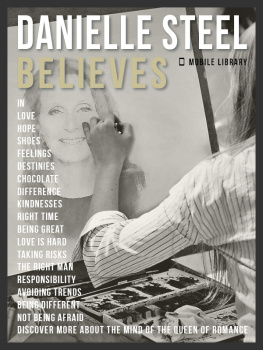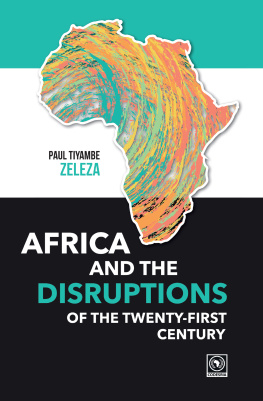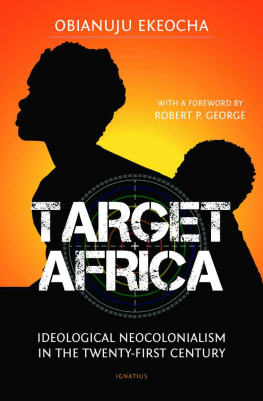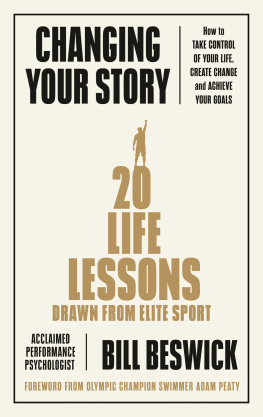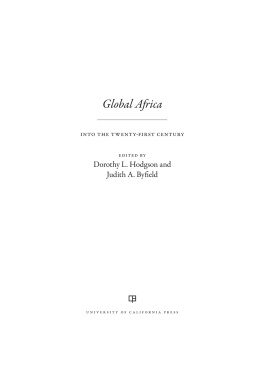Britain and Africa in the twenty-first century
Britain and Africa in the twenty-first century
Between ambition and pragmatism
EDITED BY DANIELLE BESWICK, JONATHAN FISHER AND STEPHEN R. HURT
Manchester University Press
Copyright Manchester University Press 2019
While copyright in the volume as a whole is vested in Manchester University Press, copyright in individual chapters belongs to their respective authors, and no chapter may be reproduced wholly or in part without the express permission in writing of both author and publisher.
Published by Manchester University Press
Altrincham Street, Manchester M1 7JA
www.manchesteruniversitypress.co.uk
British Library Cataloguing-in-Publication Data
A catalogue record for this book is available from the British Library
ISBN 978 1 5261 3413 4 hardback
First published 2019
The publisher has no responsibility for the persistence or accuracy of URLs for any external or thirdparty internet websites referred to in this book, and does not guarantee that any content on such websites is, or will remain, accurate or appropriate.
Typeset by
Servis Filmsetting Ltd, Stockport, Cheshire
Contents
Kasaija Phillip Apuuli is an Associate Professor in the Department of Political Science and Public Administration at Makerere University, Uganda.
Danielle Beswick is Senior Lecturer in the International Development Department at the University of Birmingham.
William Brown is Senior Lecturer in Government and Politics at the Open University.
David Curran is Research Fellow in the Centre for Trust, Peace and Social Relations at Coventry University.
Niheer Dasandi is Birmingham Fellow in the International Development Department at the University of Birmingham.
Jonathan Fisher is Reader in African Politics in the International Development Department at the University of Birmingham.
Graham Harrison is Professor in the Department of Politics at the University of Sheffield.
David Hudson is Birmingham Professorial Research Fellow in Politics and Development in the International Development Department at the University of Birmingham.
Stephen R. Hurt is Reader in International Relations at Oxford Brookes University.
Mark Langan is Senior Lecturer in International Politics at Newcastle University.
Melita Lazell is Senior Lecturer in International Political Economy at the University of Portsmouth.
Ivica Petrikova is Lecturer in International Relations at Royal Holloway, University of London.
Jennifer vanHeerde-Hudson is Senior Lecturer in Political Behaviour at University College London.
Alex Vines OBE is Head of the Africa Programme and Director for Area Studies and International Law at Chatham House and an Assistant Professor at Coventry University.
As Chair of the All-Party Parliamentary Group for Africa, I am delighted to support this important edited collection. It provides us with a number of timely reflections on the direction of travel of UKAfrica relations since the election of the Coalition Government in 2010. In doing so, it builds on some of the key findings of a seminar series on British Africa policy after Labour, which concluded with a meeting in Nairobi, Kenya in June 2016. The All-Party Parliamentary Group for Africa supported this series and the book provides a rich and complex account of the dilemmas and tensions shaping recent British engagement with Africa. The analysis covers both a range of different actors including political parties and non-governmental organisations and policy areas including aid, trade and peacekeeping. As such, it represents an original and important contribution that will be of interest to both scholars and policymakers alike.
The individual chapters engage with a coherent set of important questions, framed by the editorial team, which focus on the drivers and power dynamics underpinning contemporary UK engagement with Africa. Given the recent work done by the All-Party Parliamentary Group for Africa in our 2017 report on the future of AfricaUK trade and development cooperation, it is pleasing to see how this book addresses these issues from a number of perspectives.
The domestic context within which UK policymakers are currently operating is unpredictable given the result of the Brexit referendum. This has provided an opportunity to ask important questions about what kind of trade relationship with the UK might best serve African development in the future. Two of the chapters in this collection offer some important insights in this respect. First, a consideration of the developmental impacts of a continuation of the existing EU scheme of Economic Partnership Agreements (EPAs) with African sub-regions leads to the conclusion that they will perpetuate colonial patterns of trade. By contrast, there is also analysis of the ongoing work of UK civil society organisations which support a more progressive alternative to the reciprocal free trade that is central to EPAs.
Although the book focuses in the main on UK policy towards Africa, it also acknowledges that across a number of different policy spheres African actors are able to exert varying degrees of agency in the relationship. For example, in the realm of trade it is clear that African countries are far from passive recipients of policy and they will be able to draw important lessons from their experience of negotiating EPAs with the EU.
UKAfrica relations also need to take account of the changing global context where we see a range of players, including India and China, taking a much greater interest in what is a diverse continent. As this book effectively demonstrates, UK engagement with Africa has taken on a more pragmatic tone in recent years. With Africas population predicted by the UN to increase to 2.5 billion by 2050, this book makes a convincing case for the UK to rethink where Africa features within the hierarchy of its foreign policy agenda.
Lastly, the book provides some thoughtful reflections on the perceptions of Africa that shape the public imagination. One can only hope that this collection stimulates wider self-reflection among a range of UK actors upon the need for new ways of thinking about and engaging with Africa.
Chi Onwurah, MP
Chair, All-Party Parliamentary Group for Africa
The editors would like to thank the Economic and Social Research Council for their generous funding of the Research Seminar Series on UK Africa policy after Labour between 2014 and 2016 (Reference ES/L000725/1), at which many of the chapters collected here were first presented. We are grateful to all of the speakers and participants in the events which made up the series, in both the UK and Kenya, for their engagement and enthusiasm in bringing this project to fruition. We would also like to acknowledge the contributions of all of our series partners, for hosting and otherwise supporting the events and the seminar team, including: the Royal African Society, All-Party Parliamentary Group for Africa, British Institute in Eastern Africa, Chatham House, Institute for Public Policy Research, the University of Birmingham, Oxford Brookes University, the University of Warwick and the University of Sheffield. Finally, thanks are due to the two anonymous reviewers for their support for this manuscript and thorough reading of drafts, and to Rob and Tony at Manchester University Press for helping to ensure we made it across the finishing line.





